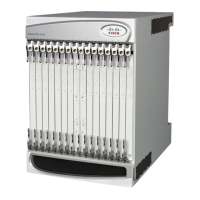Checkpointing logs should be done periodically to prevent the log files becoming full. Logs which have
50,000 events logged will discard the oldest events first as new events are logged.
Important
An Inspector-level administrative user cannot execute this command.Important
Saving Log Files
Log files can be saved to a file in a local or remote location specified by a URL. Use the following Exec mode
command to save log files:
save logs { url } [ active ] ] [ inactive ] [ callid call_id ] [event-verbosity evt_verboseness ] [ facility
facility ] [level severity_level ] [ pdu-data pdu_format ] [ pdu-verbosity pdu_verboseness ] [ since
from_date_time [ until to_date_time ] ] [ | { grep grep_options | more } ]
For detailed information on the save logs command, see the Exec Mode Commands chapter in the Command
Line Interface Reference.
Event ID Overview
The use of event IDs depends on the platform type and the licenses running on the platform.Important
Identification numbers (IDs) are used to reference events as they occur when logging is enabled on the system.
As described previously, logs are collected on a per facility basis. Each facility possesses its own range of
event IDs as indicated in the following table.
Table 12: System Facilities and Event ID Ranges
Event ID RangeDescriptionFacility
28000-28999A10 Protocol Facilitya10
29000-29999A11 Protocol Facilitya11
9000-9999A11 Manager Facilitya11mgr
6000-6999AAA Client Facilityaaa-client
36000-36999AAA Manager Facilityaaamgr
64000-64999AAA Proxy Facilityaaaproxy
173200-173299AAL2 Protocol Facilityaal2
21000-21999IP Access Control List (ACL) Facilityacl-log
90000-90999Active Charging Service Controller (ACSCtrl) Facilityacsctrl
ASR 5500 System Administration Guide, StarOS Release 21.4
188
System Logs
Saving Log Files

